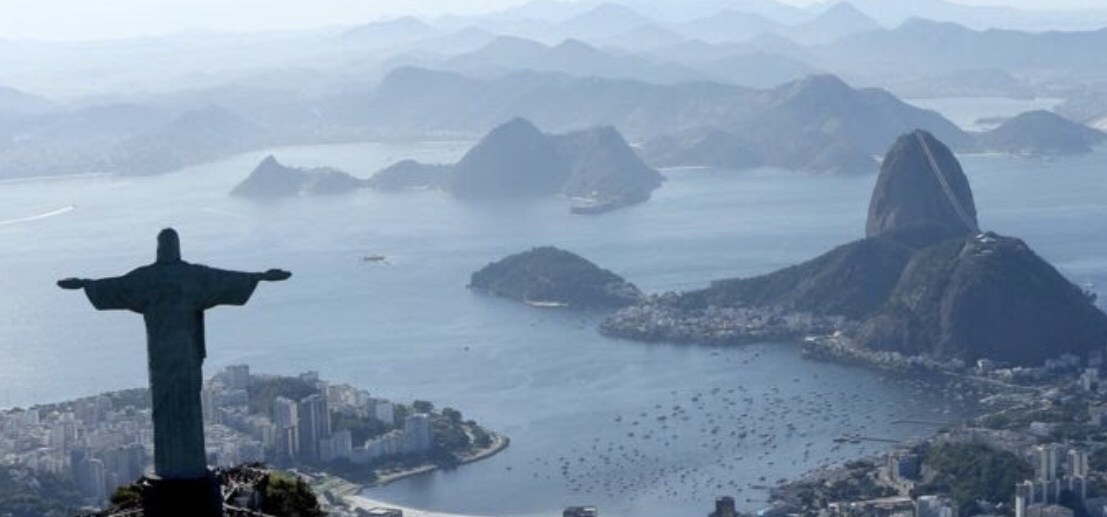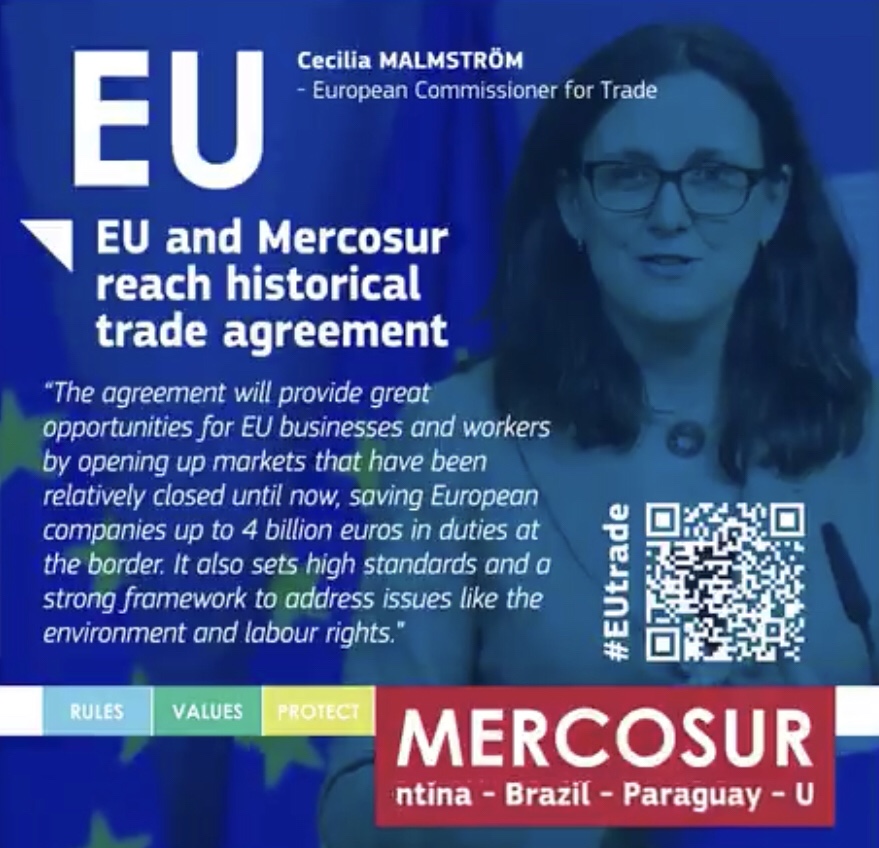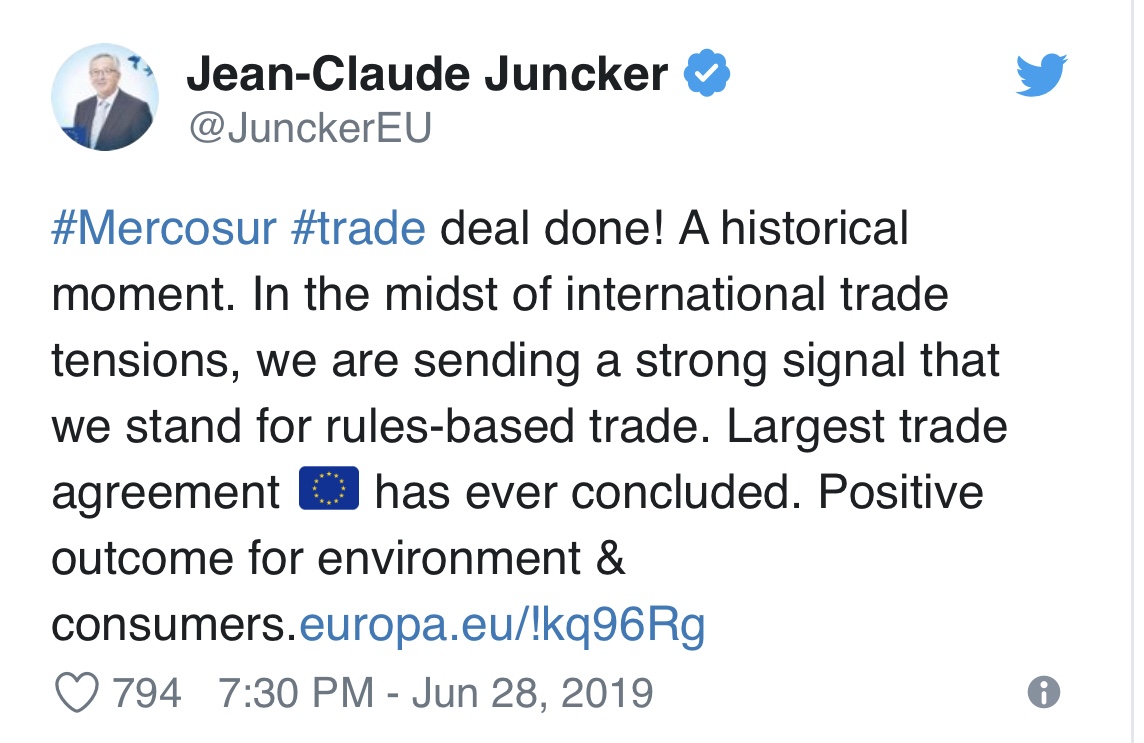EU agrees trade deal with Mercosur after 20 years
The EU and South American economic bloc Mercosur have clinched a trade deal following 20 years of negotiations.
EU Commission chief Jean-Claude Juncker said it was the EU’s biggest deal to date and, at a time of trade tensions between the US and China, showed that “we stand for rules-based trade”.

Brazil’s President Jair Bolsonaro said it was “historic” and “one of the most important trade deals of all time”.
Mercosur consists of Argentina, Brazil, Uruguay and Paraguay.
The two parties began negotiating in 1999 but talks accelerated after US President Donald Trump’s election in 2016, which led to the freezing of EU-US talks over a possible deal.
The EU has also concluded trade agreements with Canada, Mexico and Japan since Mr Trump’s election.
However, the EU deal with Mercosur could see savings on tariffs that are four times as big as the savings made in the Japan deal, EU trade commissioner Cecilia Malmstrom said.
Ms Malmstrom said negotiations had begun 20 years ago to the day.

“They have been long negotiations – tough, difficult, and at least I have said many times ‘we are almost there’. Now we are. This is a landmark agreement,” Ms Malmstrom said.
Argentina’s Secretary of International Relations Horacio Reyser said the agreement would create a market for goods and services covering 800 million consumers.
It would bring benefits for his country, he said, including boosting GDP, creating jobs and attracting investment.
Mr Reyser tweeted a video of the moment the deal was confirmed.

However, the environmental group Greenpeace has said the deal amounts to a “disaster for the environment on both sides of the Atlantic”.
Ahead of the deal’s announcement, it said the agreement would lead to more destruction of the Amazon rainforest and attacks on indigenous peoples as well as increased greenhouse gas emissions and an undermining of farmers’ livelihoods on both sides.
What’s in the deal?
The EU is already Mercosur’s biggest trade and investment partner and its second largest for trade in goods, Reuters reports.
The EU wants to increase access for its firms that make industrial products and cars and also enable them to compete for public contracts in Mercosur countries.
Mercosur wants to increase exports of beef, sugar, poultry and other farm products.
In a statement, Brazil said the deal included eliminating tariffs on products such as orange juice, instant coffee and fruit.
Meanwhile, producers of other products such as meat, sugar and ethanol would have greater access to the EU market through quotas, the statement said.
You must be logged in to post a comment.